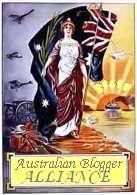THOUGHT THE REST OF THE WORLD MAY FIND THIS ARTICLE INTERESTING.
DURING the federal election campaign, Mark Latham and John Howard supported policies aimed at easing the financial burden of child care. The Coalition even agreed to increase the family tax benefit for stay-at-home mums - an intriguing policy move that shows the Prime Minister's heart remains with nuclear families whose main breadwinner is still the male.But, in his fourth term, Howard should get his head around a new demographic that will demand a rethink in how governments manage their family policies. Quality of life, the work/family juggle and affordable, loving child care -- these are issues of acute importance to a growing section of Australian society -- older parents. They want balance in their lives, flexibility in the workplace and the need to know that their precious offspring are going to be in a childcare centre that is not wholly profit-driven.
Howard's election promise to introduce a 30 per cent childcare rebate may ease the squeeze. But the crucial issue of paid maternity leave for all Australian workers remains in the policy dustbin. So does any official policy on workplace flexibility -- a must for women who want to return to the workforce but also want to be intimately involved in their children's lives.
In her new book, Late Babies (Bantam), which deals with having a baby after 35, Brisbane journalist Sandra McLean rightly notes that older parents are now torn between their careers and their children. What is needed is not just a policy shift but a new state of mind among politicians that ensures parents -- and older mums and dads in particular -- are supported in their desire to juggle work and family.
It's a fact of life that parents are getting older in Australia. This changing face of Australian parenthood is documented by McLean who interviews 12 late-parenting women including ballerina Lisa Bolte, magazine editor Deborah Thomas and former champion swimmer-turned actor Lisa Forrest.
Significantly, women aged 35-39 have more than doubled their rate of giving birth since 1982. The average age of fathers, according to Australian Bureau of Statistics figures, is also increasing, with first-time dads on average aged 32.5 years. The flipside is that younger women aged under 29 are less interested in having babies. Hence fertility rates for this age group have halved over the past two decades. As a result, Australia's birthrate has fallen to just 1.7 babies
per woman -- a rate well below population replacement level and well down on the 1960s peak of 3.5 babies per woman.
It is commonly thought that financial pressures and hectic lifestyles are forcing women to put off having children or to stop at just one child. This is partly true, but there are other factors at play in this complex tango with the body clock, including the inability of women to find a suitable parenting partner.
A landmark study of young Australians released last month showed that despite fears about declining fertility being driven by a desire for childlessness, 90 per cent of young people interviewed said they wanted to have children. According to the Australia Institute study: "Explanations for declining fertility may be more in disappointed expectations than in early planned childlessness."
Disappointed expectations can have a plethora of meanings. Young Australians expect to work, live in households with two incomes, have more than one child and share housework and childcare. However, the long-term decline in traditional male breadwinner households, the need to repay rising HECS fees, the need for both partners to work to pay off the mortgage that Howard promises all Australians can have, means a new set of pressures are making both men and women wait longer to have children.
Leading women's advocate Anne Summers cogently argues that, as a society, we ask women to give up too much when they have children and we give them far too little in return. And Juanita Phillips, ABC-TV newsreader and first-time mum at 40, maintains that more needs to be done for women and, in particular, older mums: "I really feel for those women who don't have paid maternity leave and are forced to take unpaid leave. Society tends to think that having a baby is a woman's problem -- you have to have the baby, you want to work, well, then it is your choice to work it out."
But, especially given current demographics, having a baby in Australia in the 21st century is a problem that confronts the nation.
FYI, HECS FEES IS THE GOVERNMENT LOAN YOU PAY BACK AFTER YOU COMPLETE UNIVERSITY AND GAIN A JOB. tHEY TAKE OUT 1% -8% OF YOUR WAGE EACH WEEK TILL ITS PAID BACK. jUST ON THAT, AUSTRALIA'S UNI FEES ARE A THIRD OF WHAT AMERICA PAYS AND 25% CHEAPER THAN THE UK.






0 Comments:
Post a Comment
Subscribe to Post Comments [Atom]
<< Home